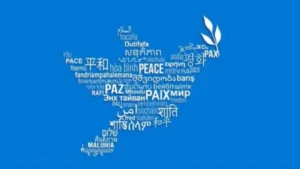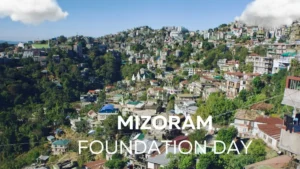Global Family Day, observed on January 1 each year, sets the tone for the new year with a focus on fostering peace, unity, and appreciation for the families that bring joy and stability to our lives. The day is meant to emphasize the connection between world peace, communities, and the importance of strengthening families. This day aims to encourage global peace and understanding, calling for an action-driven approach to address conflicts and promote harmony.
History of Global Family Day
- Proposed in November 1997 and inspired by the book One Day In Peace.
- Published by the United Nations on January 1, 2000, marking the start of the International Decade for the Culture of Peace and Non-Violence for the Children of the World.
- Formal declaration for celebrating Global Family Day made by UN members in 1999.
Significance
- Unity in Diversity: Celebrates harmony and understanding across different cultures and communities.
- Peace Promotion: Raises awareness about the importance of peace and the need to reduce violence.
- Community Engagement: Encourages activities like educational webinars and local celebrations that unite people for peace.
- Global Awareness: Increases understanding of global conflicts and the role families play in promoting peace.
Role of Family Traditions on Global family Day
- Cultural Reflection: Families can revive or start new customs that strengthen bonds, such as sharing family stories or creating family trees.
- Positive Atmosphere: Families might exchange New Year’s wishes and set positive goals for the year ahead.
Importance
- Bridging Differences: Encourages embracing diversity and understanding different cultures.
- Promotes Cultural Exchange: Offers opportunities to learn and experience new customs and traditions.
- Enhances Family Bonds: Highlights the importance of spending quality time with family to foster strong relationships.
- Global Awareness: Provides a platform for discussions on pressing global issues that need collective efforts to resolve.
Types of families In India
- Joint Family: Multiple generations living together, sharing finances and responsibilities.
- Nuclear Family: A couple and their children living independently.
- Extended Family: Includes three to four generations, fostering close blood ties.
- Patrilocal Family: The wife moves to the husband’s family after marriage.
- Matrilocal Family: The husband moves to the wife’s family after marriage.
- Bilocal Family: The married couple alternates living with either partner’s family.
- Neolocal Family: The couple starts a new, independent family away from both parents.
Advantages of Joint Family In India
- Sharing Economic Responsibilities: Reduced financial strain by pooling resources.
- Child Care Support: Grandparents and other family members help with childcare, providing emotional and practical support.
- Building Strong Bonds: Extended families foster emotional connection across generations.
- Family Culture & Traditions: Preserves and shares cultural practices and values.
- Built-in Support System: Offers practical, financial, and emotional assistance during tough times.
- Reduced Stress: Shared responsibilities help reduce household burdens.
| Summary/Static | Details |
| Why in the news? | Global Family Day: A Celebration of Unity, Love, and Peace |
| Event | Global Family Day (January 1) |
| Purpose | Fosters unity, peace, and appreciation for families. |
| History | Emphasizes addressing global issues with collective efforts for peace. |
| Significance | – Promotes peace and harmony across cultures. – Raises global awareness on conflicts. – Encourages unity in diversity. |
| Role of Family Traditions | – Strengthens family bonds through shared customs. – Example: creating family trees or exchanging wishes. |
| Importance of the Day | – Bridging cultural differences. – Promotes cultural exchange and understanding. – Enhances family connections. |
| Types of Families in India | – Joint, Nuclear, Extended, Patrilocal, Matrilocal, Bilocal, Neolocal. |
| Global Awareness | Emphasizes addressing global issues with collective efforts for peace. |



 International Mother Language Day 2026: ...
International Mother Language Day 2026: ...
 Arunachal Pradesh Foundation Day 2026: P...
Arunachal Pradesh Foundation Day 2026: P...
 Mizoram Foundation Day: A Tribute to Cul...
Mizoram Foundation Day: A Tribute to Cul...








